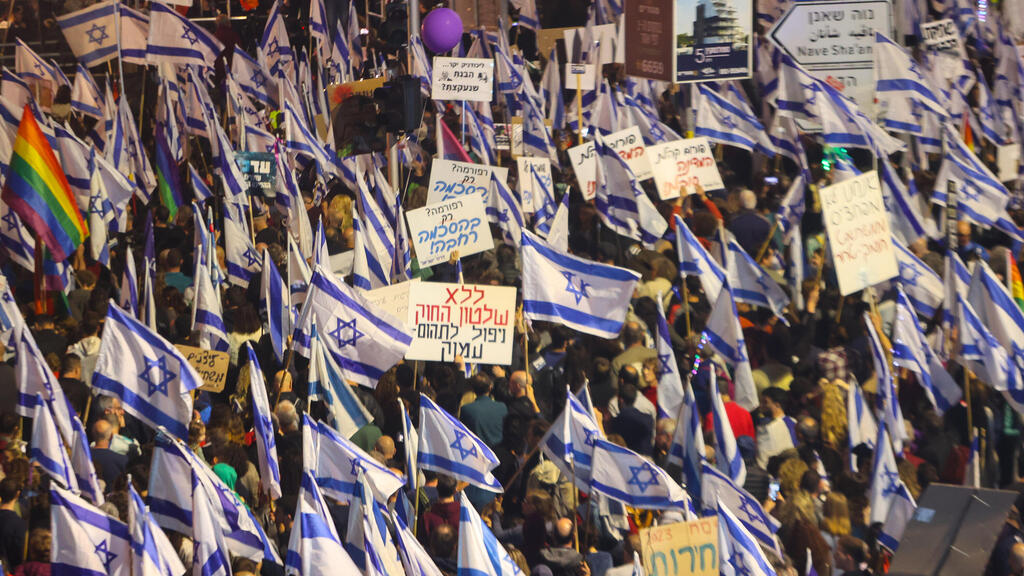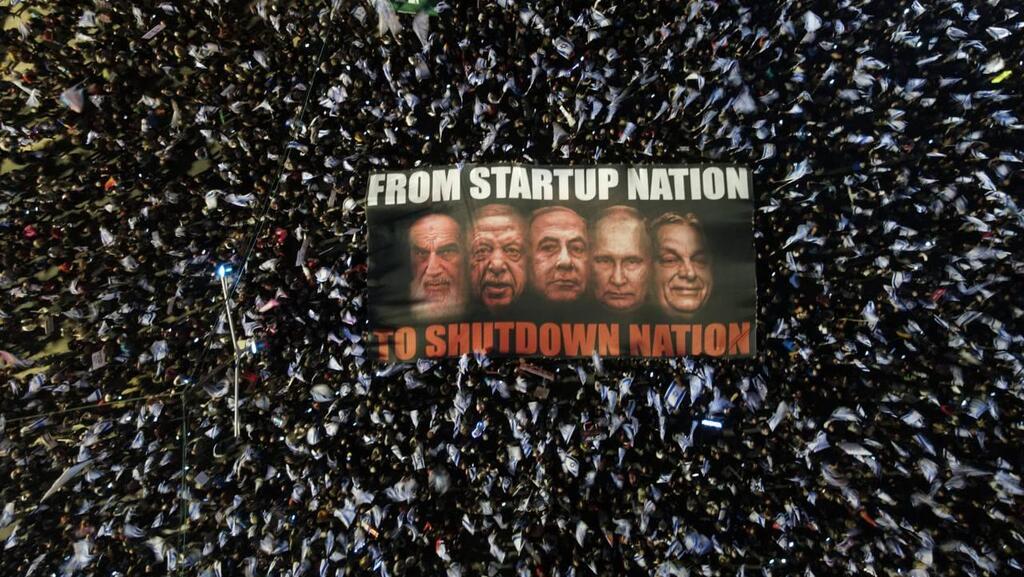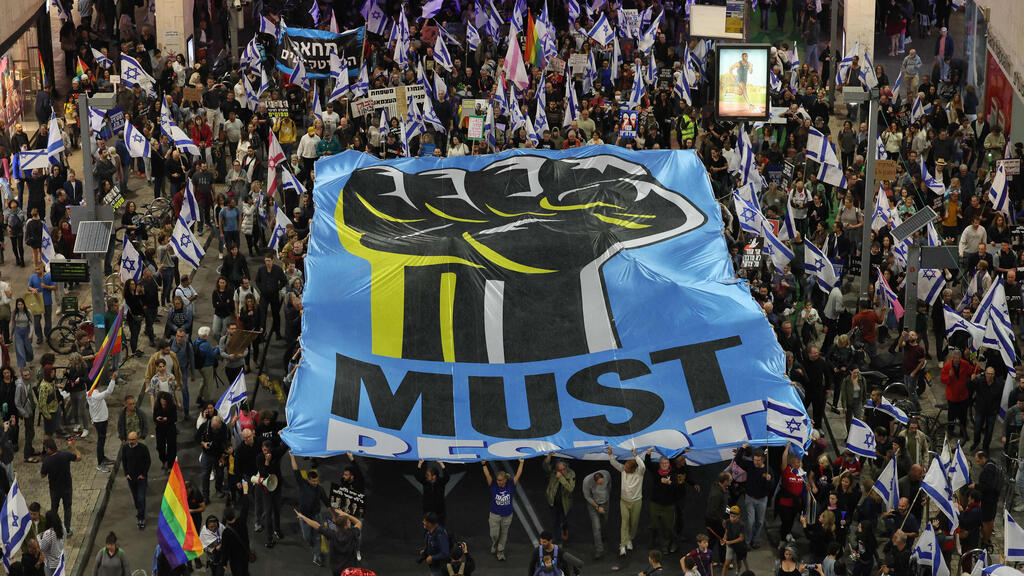This is one of the most legitimate protests in Israel's history.
Some have tried to quash it by pointing out a handful of Palestinian flags flown at rallies, but for every such flag, a thousand Israeli flags were raised, so that fell flat.
Others claimed the protest wasn't about the judicial overhaul at all but rather an attempt to overrule the will of the voter, but that too missed the mark. This protest's success lies in its expansion to more and more audiences, it's not merely a left-wing protest.
Prominent religious and right-wing figures have also joined in, and while most of them don't take the streets, they make their voices heard by appealing for dialogue and broad consensus.
Are they too anarchists? Who are you trying to fool?
As for those screeching voices on the margins flying the BDS flag, let them, they clearly do not represent anything.
But the protest also brings the pain. The fissure is here. And 37 out of 40 pilots of the Israeli Air Force's elite 69 Squadron declaring they won't report for training is the closest thing to mutiny.
We must not allow this terrible scourge to become the face of the protest for there is a fine line where a protest shifts from an opposition to the government to an opposition to the state. There are too many elements on the left that had done so, there's no need for the protest to tread the same line.
Crossing that red line would only harm the protest since it draws its success from the fact that it has become a consensus in and of itself, and public opinion polls show as much.
As soon as the protest crosses these red lines, it will become a sectoral protest of the extreme left. This was not the intention of the pilots who declared that they won't report for reserve duty, but this may be the result. So yes, we must apply pressure to prevent harm to democracy. But there is no need for the protest to exacerbate that harm.
Past Israeli governments have also faced massive blowback from the public. Masses of incensed citizens took to the streets when David Ben-Gurion accepted reparations for the Holocaust from Germany to get the Israeli economy on its feet in the early 1950s, and many considered him a traitor for it.
When Itzhak Rabin signed the Oslo Accords with then-Palestinian leader Yasser Arafat, he too was labeled a traitor to the state and ultimately assassinated by a Jewish right-wing activist.
But back then the governments represented the will of the majority, which is not the case nowadays. Israel's coalition system allows radical elements to hold the government by the gonads.
A third of the ruling Likud party pushes the reform fervently, another third is hesitant to air even the most modest of support while another third remains silent. This reflects, more or less, the results of recent opinion polls.
The reform's most ardent supporters come from the ultra-Orthodox parties and the far-right, which includes parts of Likud. They are a minority among Israeli voters, but they call the shots and impose their views. Such is the system in Israel. But a constitutional shift cannot come about by coercion. It must have a broad consensus begotten by earnest dialogue where each side gets the chance to air their views. The changes spearheaded by Justice Minister Yariv Levin and Knesset's Constitution, Law and Justice Committee Chairman Simcha Rothman are forced.
So public protest may very well be the call of the hour in the face of the minoritarian rule rooted in Israel's coalition system, but one that does not cross red lines. A protest against coercion and attempts to curtail democracy. Not protest that roils the IDF.
These are tumultuous times. We need a compromise. We hope that President Herzog will succeed in bringing about one. But not all means are justified to achieve this goal. This should also be clear to the supporters of the protest.




